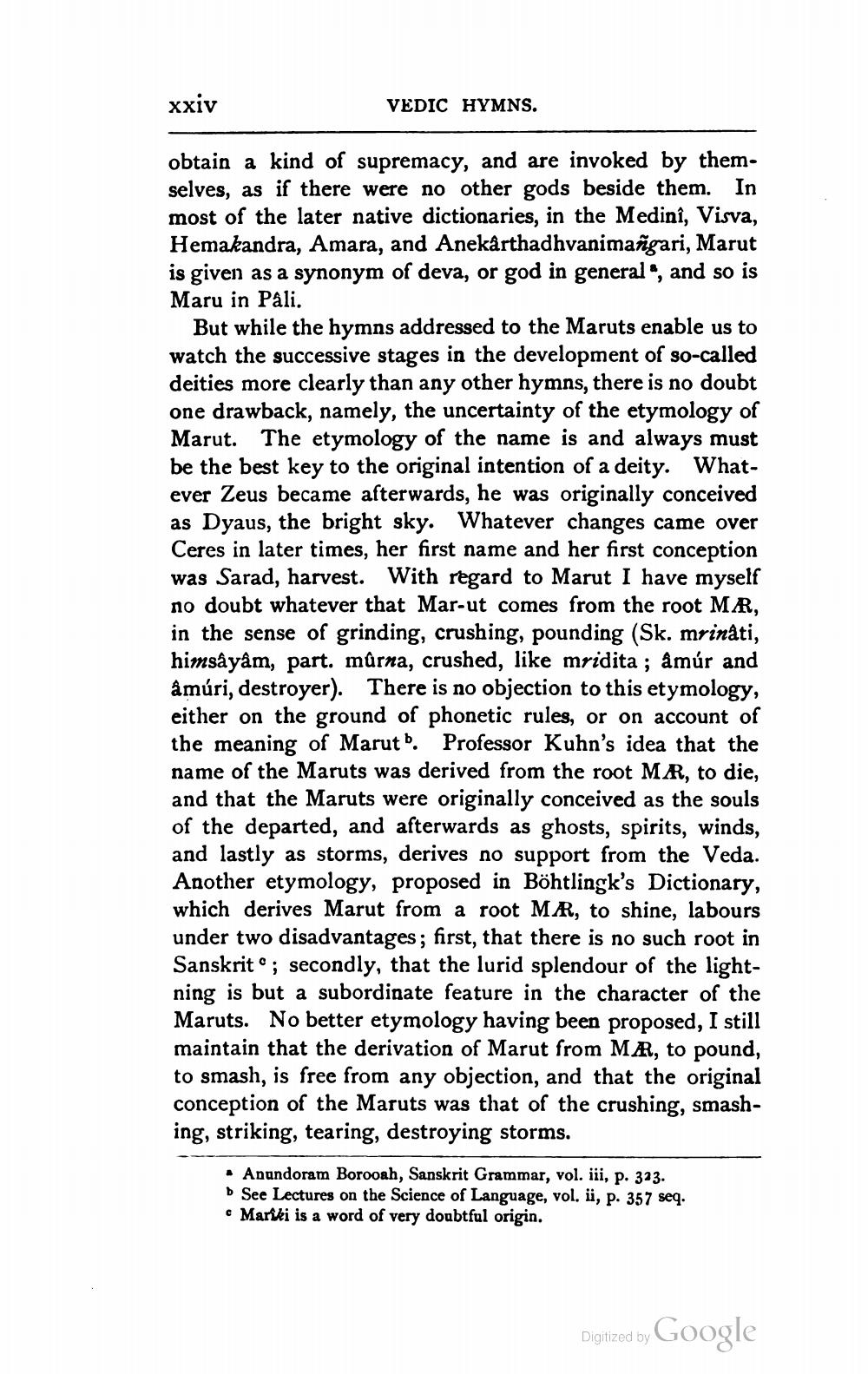________________
xxiv
VEDIC HYMNS.
obtain a kind of supremacy, and are invoked by themselves, as if there were no other gods beside them. In most of the later native dictionaries, in the Medinî, Visva, Hemakandra, Amara, and Anekarthadhvanimañgari, Marut is given as a synonym of deva, or god in general", and so is Maru in Pali.
But while the hymns addressed to the Maruts enable us to watch the successive stages in the development of so-called deities more clearly than any other hymns, there is no doubt one drawback, namely, the uncertainty of the etymology of Marut. The etymology of the name is and always must be the best key to the original intention of a deity. Whatever Zeus became afterwards, he was originally conceived as Dyaus, the bright sky. Whatever changes came over Ceres in later times, her first name and her first conception was Sarad, harvest. With regard to Marut I have myself no doubt whatever that Mar-ut comes from the root MR, in the sense of grinding, crushing, pounding (Sk. mrināti, himsâyâm, part. murna, crushed, like mridita ; âmúr and amúri, destroyer). There is no objection to this etymology, either on the ground of phonetic rules, or on account of the meaning of Marutb. Professor Kuhn's idea that the name of the Maruts was derived from the root MR, to die, and that the Maruts were originally conceived as the souls of the departed, and afterwards as ghosts, spirits, winds, and lastly as storms, derives no support from the Veda. Another etymology, proposed in Böhtlingk's Dictionary, which derives Marut from a root MR, to shine, labours under two disadvantages; first, that there is no such root in Sanskrito; secondly, that the lurid splendour of the lightning is but a subordinate feature in the character of the Maruts. No better etymology having been proposed, I still maintain that the derivation of Marut from MR, to pound, to smash, is free from any objection, and that the original conception of the Maruts was that of the crushing, smashing, striking, tearing, destroying storms.
• Anandoram Borooah, Sanskrit Grammar, vol. iii, p. 323.
See Lectures on the Science of Language, vol. ii, p. 357 seq. • Mariki is a word of very doubtful origin.
oubtful ouage, vol. : i, p.
Digized by Google




